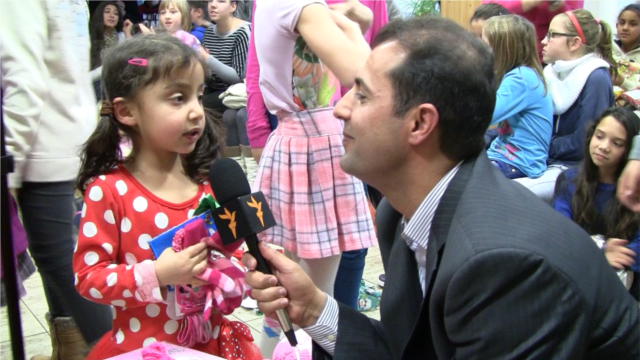RFE/RL’s Radio Mashaal Marks Nearly A Decade Of Impact In Pakistan’s Tribal Regions
Radio Free Europe/Radio Liberty (RFE/RL) this week is marking almost a decade of reporting serving as a powerful alternative to extremist propaganda in Pakistan’s remote and restive tribal regions along the Afghan border.

(PRAGUE – January 18, 2019) Radio Free Europe/Radio Liberty (RFE/RL) this week is marking almost a decade of reporting serving as a powerful alternative to extremist propaganda in Pakistan’s remote and restive tribal regions along the Afghan border.
“A decade ago, the youths in Pakistan’s tribal areas were resorting to violence to demand their basic rights. Today, they are using democratic means to seek justice,” said Amin Mudaqiq, director of Radio Mashaal, RFE/RL’s Pashto-language service. “Radio Mashaal is a voice of the people in their language in this region, and I believe we have played a role,” he said.
RFE/RL launched Radio Mashaal in 2010 to engage audiences, primarily youth, which are targeted by the “mullah” radio of the Taliban and the recruitment efforts of militant groups that have had a monopoly on information in Pakistan’s Federally Administered Tribal Areas, merged with Pakistan’s northwestern Khyber Pakhtunkhwa province in May 2018.
Radio Mashaal’s impact is driven by its unique content and an aggressive digital strategy, which it adopted in response to the spread of mobile phones in the region and extremist content on social media. In 2018 it registered over 42 million engaged users on Facebook, almost 100 million video views on YouTube – 10 times the number of views logged in 2017 – and 2 million followers on combined social media platforms.
Speaking recently on Radio Mashaal about its role, prominent women’s rights activist Gulalai Ismail, a recipient of the 2017 Anna Politkovskaya Award and a “leading global figure” named by Foreign Policy in 2013, lauded it for creating awareness about women rights and providing a platform for the discussion of ordinary people’s problems in a region where media is otherwise not free to cover such issues.
Safdar Dawar, a senior journalist from the tribal areas and former president of the Tribal Journalists Union, recently told Mashaal, “We have no TV channels, newspapers or other media outlets in the tribal region. With the emergence of Radio Mashaal … [p]eople got awareness and now demand not only the provision of basic needs but also the protection of their fundamental rights.”
Such reporting is not without risks. Pakistan’s tribal areas are notoriously dangerous, and Mashaal’s reporting on local issues and human rights makes it a frequent target of militant groups, state security agencies, and criminal gangs. “Taliban groups call us threatening to attack if we refuse their demands, and intelligence agency officials pressure our journalists,” said Mudaqiq.
“We resist these pressures, but we are always walking a tightrope to ensure we are balanced and to try and ensure the safety of our reporters.”
Such pressures culminated on January 19 last year, when Pakistan’s Inter-Services Intelligence (ISI) Agency ordered the closure of Radio Mashaal’s Islamabad bureau, claiming its programming is “against the interest of Pakistan.” RFE/RL has deplored the closure and called on authorities to ensure that its journalists “be permitted to resume their work without fear.”
Mashaal’s website has remained partially blocked in Pakistan since July 2018 in what may be an additional effort to suppress its reporting.
In their most recent surveys of press freedom, Freedom House designated Pakistan “not free” with a score of 141 out of 198 countries assessed. Reporters Without Borders ranked Pakistan 139 of 180 countries in its Press Freedom Index.
The Committee to Protect Journalists (CPJ) has reported a decline in fatal attacks against the media in Pakistan in 2018, but documented “acts of intimidation” and increased “fear and censorship” among journalists, adding that “measures to stomp out terrorism in the country have gone hand-in-hand with increased pressure on the media” to prevent critical reporting.
About RFE/RL
RFE/RL relies on its networks of local reporters to provide accurate news and information to over 34 million people in 26 languages and 22 countries where media freedom is restricted, or where a professional press has not fully developed. Its videos were viewed over 2.6 billion times on Facebook and YouTube in FY2018. RFE/RL is an editorially independent media company funded by a grant from the U.S. Congress through the U.S. Agency for Global Media.
—-
FOR MORE INFORMATION, CONTACT:
Joanna Levison in Prague (levisonj@rferl.org, +420.221.122.080)
Martins Zvaners in Washington (zvanersm@rferl.org, +1.202.457.6948)